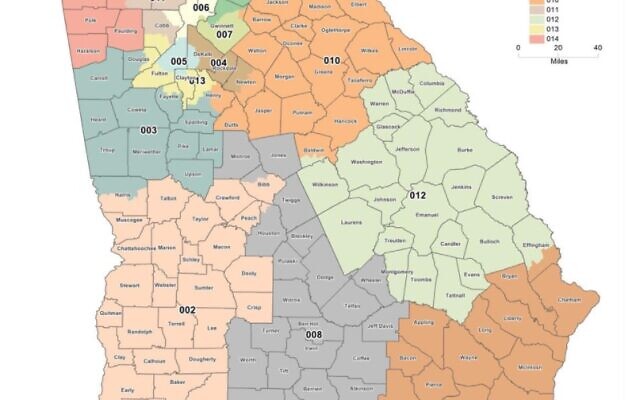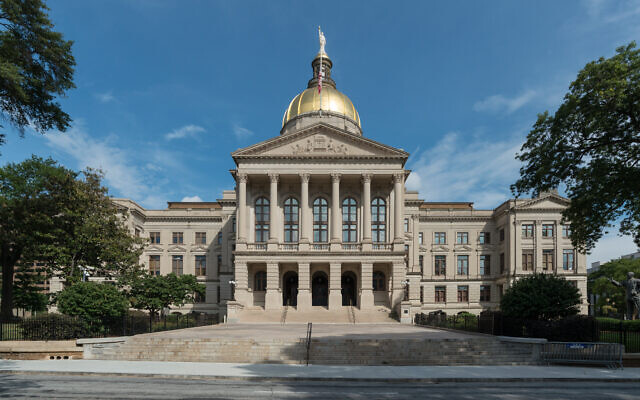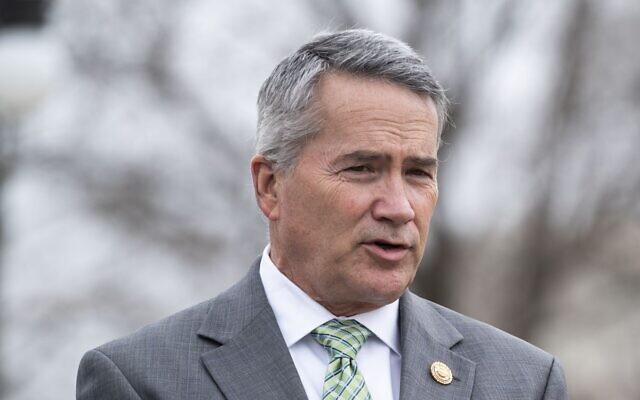Political Storm Clouds Return to Georgia
The May 24 primary — and any necessary runoffs on June 21 — will set the stage for the Nov. 8 general election. The size of the fields in several races suggests that runoffs are possible, if not probable.
Dave Schechter is a veteran journalist whose career includes writing and producing reports from Israel and elsewhere in the Middle East.
Two years ago, Georgia was in the eye of a national political hurricane. Those winds are swirling around the state again in 2022 and the forecast includes another deluge of political advertising.
The May 24 primary — and any necessary runoffs on June 21 — will set the stage for the Nov. 8 general election. The size of the fields in several races suggests that runoffs are possible, if not probable.

If you already are registered to vote and want an absentee ballot, the deadline to apply is May 13. The voter registration deadline was April 25. Georgia does not same day voter registration.
Early voting began May 2 and ends May 20. On Election Day, polls open at 7 a.m. and are scheduled to close at 7 p.m.

Jews make up about 1.2 percent of Georgia’s population. According to the Public Religion Research Institute’s 2020 report on American religious belief, DeKalb and Fulton counties are 2 percent Jewish and Gwinnett, Cobb, and Cherokee counties 1 percent each. But because Jews tend to vote at higher rates than most other groups, their votes are sought after, particularly in congressional and local races in areas with significant Jewish populations.

The Georgia races likely to receive the most national attention are the Republican primaries for U.S. senator, governor, secretary of state, and the Democratic primary in the 7th congressional district.
Former President Donald Trump may not be on the ballot, but he has made endorsements in nearly 140 races, from U.S. Senate and House races to statewide contests. In Georgia, Trump has endorsed candidates in the Republican contests for the U.S. Senate (Herschel Walker), governor (David Perdue), secretary of state (Jody Hice), attorney general (John Gordon), 10th congressional district (Vernon Jones), and insurance commissioner (Patrick Witt).

In an Atlanta Journal-Constitution survey of 886 likely Republican voters, conducted April 10-12 by the University of Georgia’s School of Public and International Affairs, Trump received a 77.4 favorable rating. In the same poll, 36.4 percent said a Trump endorsement would make no difference in their vote, while 44.9 percent said that his endorsement would make them somewhat, or much more likely to vote for a candidate, and 15 percent saying it would make them somewhat or much less likely to do so.

The election will be a large-scale test of Georgia’s new voting law, which thus far has withstood court challenges. The new rules were enacted by the Republican-dominated General Assembly amid disproven claims of widespread voter fraud in the 2020 election and despite two recounts in which President Joe Biden defeated incumbent Trump in Georgia by 12,000 votes.

The most controversial aspects Georgia’s new voting law include the requirement of a state-recognized identification card for absentee voting, preventing provisional ballots from being cast in the wrong precinct before 5 p.m. on Election Day, limiting absentee drop boxes, and a ban on providing water or other refreshments to people waiting in line to vote.

A federal judge has dismissed challenges to the congressional and legislative districts redrawn after the 2020 Census. Democrats and advocacy groups complained that redistricting was intended to lessen the influence of minority voters, particularly African Americans.
At present, Republicans hold eight of the 14 seats in Georgia’s congressional delegation. The legally-required redistricting after the 2020 Census — overseen by the Republican-controlled General Assembly -— gave Republicans hope of gaining a ninth seat.
The 6th district, represented by Democrat Lucy McBath, was redrawn to increase Republican chances, while the 7th district was redrawn to enhance Democratic strength. McBath responded by jumping into the the 7th district race, already represented by Democratic incumbent Carolyn Bourdeaux.
There are 7.7 million registered voters on the state’s roll, 11 percent more than four years ago. Analysis by the Atlanta Journal-Constitution found the voter roll racial breakdown to be 52 percent white (down from 54 percent four years earlier) and 30 percent Black, with Hispanic, Asian and other a combined 8 percent, and 9 percent unknown.
The percentages of Hispanics and Asian-Americans registered to vote continue to increase but lag behind both group’s increasing segment of the state’s overall population.










comments